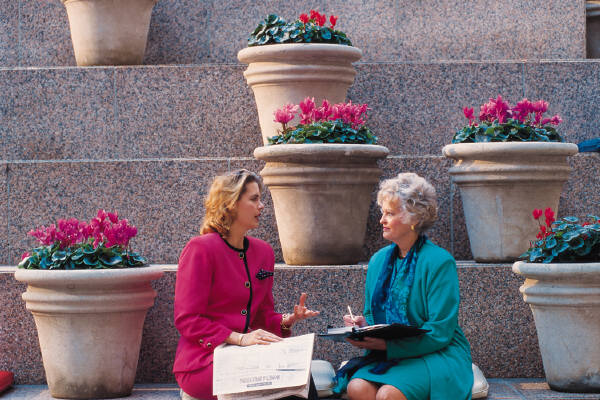
Here is the question: Who held you accountable for your success? If you are just starting on your journey toward success, who will hold you accountable – when you fail to do so? Susan Fletcher, a contributor to SUCCESS magazine, defines an accountability partner as someone who will help you meet goals; someone you will listen to but who will hold you accountable.Each of us aspires to a measure of success in our personal lives, as career professionals, or in business. Success is one of the more powerful motivating forces anyone can define.
Yes, we were, or are, disciplined, focussed, industrious, passionate, and persistent. We had to be but, we are never everything we have to be all the time.
There will be the inevitable moments of doubt and disappointment; the periods of stress. Every mentor and every successful person I ever knew had one indispensable thing in common: an accountability partner; sometimes a family member or a friend. Often it was a colleague or a trusted advisor. This person was someone they trusted without reservation; someone disposed to tell them the truth.
My accountability partners were a select few; people who could be brutally honest and tell me to “sit down! and shut up!” and I did not look for a chair. I sat where I stood and zipped it!
You see, anyone we elevate as a role model or key figure in our lives, can describe their journey to the top i.e., the “what”, the “how”, and for me, the all-important “who.” The accountability partner occupies a unique role. They ask the questions we missed? They have that timely reminder about an important timeline missed? And, they are there to to remind us that often the best route forward may not be the most direct? They helped me to understand an old Foreign Service bit of wisdom: if you did not have the right combination of age, rank, and experience by the age of 45, you were unlikely to be selected for the senior ranks. That was important to me. And, yes, I was selected into the senior Foreign Service shortly thereafter.
We need people like this to accompany us along segments of our journey if the success we desire is to be attained.
We may not always agree with our accountability partner’s counsel. Advice may come in the form of constructive criticism that stings. What is crucial is our willingness to set aside fragile egos and accept counsel at face value; to trust their wisdom, experience, and integrity.
I knew my mentors cared for me, were invested in my success and wanted to see me succeed. They knew what I didn’t, had the experience I sought, and had achieved the success both of us felt was within my grasp.
Experience can be a harsh taskmaster. Experience can also erect psychological barriers to trust frequently difficult to overcome. It was for me. Early in my former career, there were more “friends” opposed to my aspirations than were willing to support me. People who looked like me were never presumed to share aspirations that mirrored those of other colleagues. I became insular and prepared to be guided by my judgment over the judgment of “well-intentioned” others.
The odds favored my detractors (there were more of them) until the day they positioned me against the edge of what was a career abyss. The hand of a colleague, a friend I had not seen, extended and became my lifeline. That was several decades ago. He became the older brother I lost early in life, and the career guide whose counsel was – and remained – indispensable even into retirement
My friend and accountability partner understood my career goals and agreed to hold me accountable for the milestones I had to reach within established timetables.
Remember, you are who you associate with. Who in your orbit of friends and associates represents your future? Are they growing? Do they contribute to your growth? Achieving success is often about problem solving. Albert Einstein said “you can never solve a problem on the level that caused the problem.”
My accountability partners helped me to frame problems in contexts beyond my scope of reference and how to craft solutions that reduced stress and enhanced my value as a career officer.
What criteria have you established for those you select to hold you accountable for your success?

